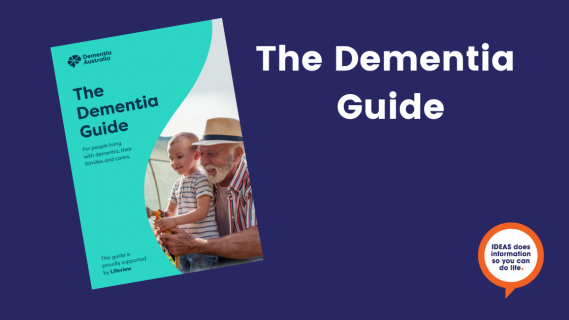In the first part of Dawn’s Story, Dawn was diagnosed with dementia and has taken residence in an aged care facility. When Bill, her husband, visits, they discuss how Christmas will be celebrated. Joyce, her favourite tea lady and friend, has offered the family some tips for celebrating a dementia-friendly Christmas and holiday season.
Many people look forward to spending time with their family and friends at Christmas and holidays. However, when a family member or friend is living with dementia, the experience for everyone can be overwhelming with tension and pressure. Combine this with trying to connect after possibly months or even years apart, finding common topics of conversation, and the inclusion of summer heat and alcohol, making tempers short and frazzled.
Dawn’s friend Joyce has the following tips, which may help to keep conversations smooth and kind, feelings saved from hurt and misunderstanding, and everyone enjoying this special time.
- Conversations are better kept simple with the use of short sentences. Slow down your speech and wait patiently for a reply. Extra time may be necessary for the person with dementia to think and formulate an answer; otherwise, they may feel rushed and flustered, leading to embarrassment and awkwardness. Props such as old photographs can assist in jogging the memory of someone with dementia while also expanding the topics of conversation. If talking becomes too hard, maybe singing or humming a familiar song works better. Music is known to soothe some people living with dementia.
- Often at Christmas and during holidays, homes that are usually quiet and orderly transform into places of noise with laughter and talking. With extra people come extra things, such as boxes of groceries or additional equipment like walkers and walking sticks. Planning can help to minimise the associated stress of unfamiliar locations and situations. A bag packed with a change of clothes (ready for use if the person has been ‘caught short’ of a toilet) and necessary medication can be comforting. It’s also good to have a close family member or friend appointed as a designated driver if feelings of anxiety are overwhelming and the person with dementia wants to go home. Alternatively, as part of the planning, a bedroom with a bathroom nearby can become a quiet retreat, so someone can lie down and rest.

- Christmas meals often elicit fond memories of traditions such as saying grace, doing a toast, remembering family and friends who have passed away and wishing those present good wishes for the season. These can all be cues for the person with dementia that a meal is close to being served.

- Smaller portions of soft food are more suitable for people who have difficulty chewing and swallowing. Finger food and snacks are ideal for people to choose from. Breaking from the traditionally table-served meal with plates and bowls placed around a room or deck can help to keep people with dementia well-nourished and independent while free of the worry of using cutlery.
- For a person with advanced dementia, assistance may be needed to prompt the use of cutlery (if that is how the meal is being eaten), and the table napkin may be laid on their lap. Often people with dementia have difficulty seeing what is on their plate, so lighting needs to be considered, and food served on a contrasting coloured plate. Consider having the person seated for easy exit from the table if they need to use the bathroom.

- Although Dawn is in care, her husband, her son Paul or her daughter Carol may appreciate a kind word of enquiry about how they are going and offered the opportunity to have a break with time to rest and recoup from their routine. This could be like lying down and reading or taking a long walk around a park or lake. In either case, assure them their loved one will be attended to and cared for in their absence.
- If someone is like Dawn and lives in an aged care facility, consider the time they are out. A visit of two hours may be the limit, with plenty of time allowed for the return to their home so they can be settled back into their routine without a rushed goodbye.

Christmas celebrations and how they are done are different for everyone; however, for many, the main focus is spending time with loved ones. For people living with dementia, the smallest gestures often mean the most. This could be sitting quietly with someone having a chat in the kitchen. At the same time, chaos reigns out in the lounge room or taking a gentle stroll around the garden discussing the different varieties of flowers in bloom, finishing up with a pot of tea and slices of Christmas cake.
Above all else being flexible with time and meals may help to soothe frazzled nerves and moods. And a good old laugh at a silly situation may defuse an awkward action or comment.
Useful resources
HammondCare Southern CrossIDEAS does information so you can do life.


































